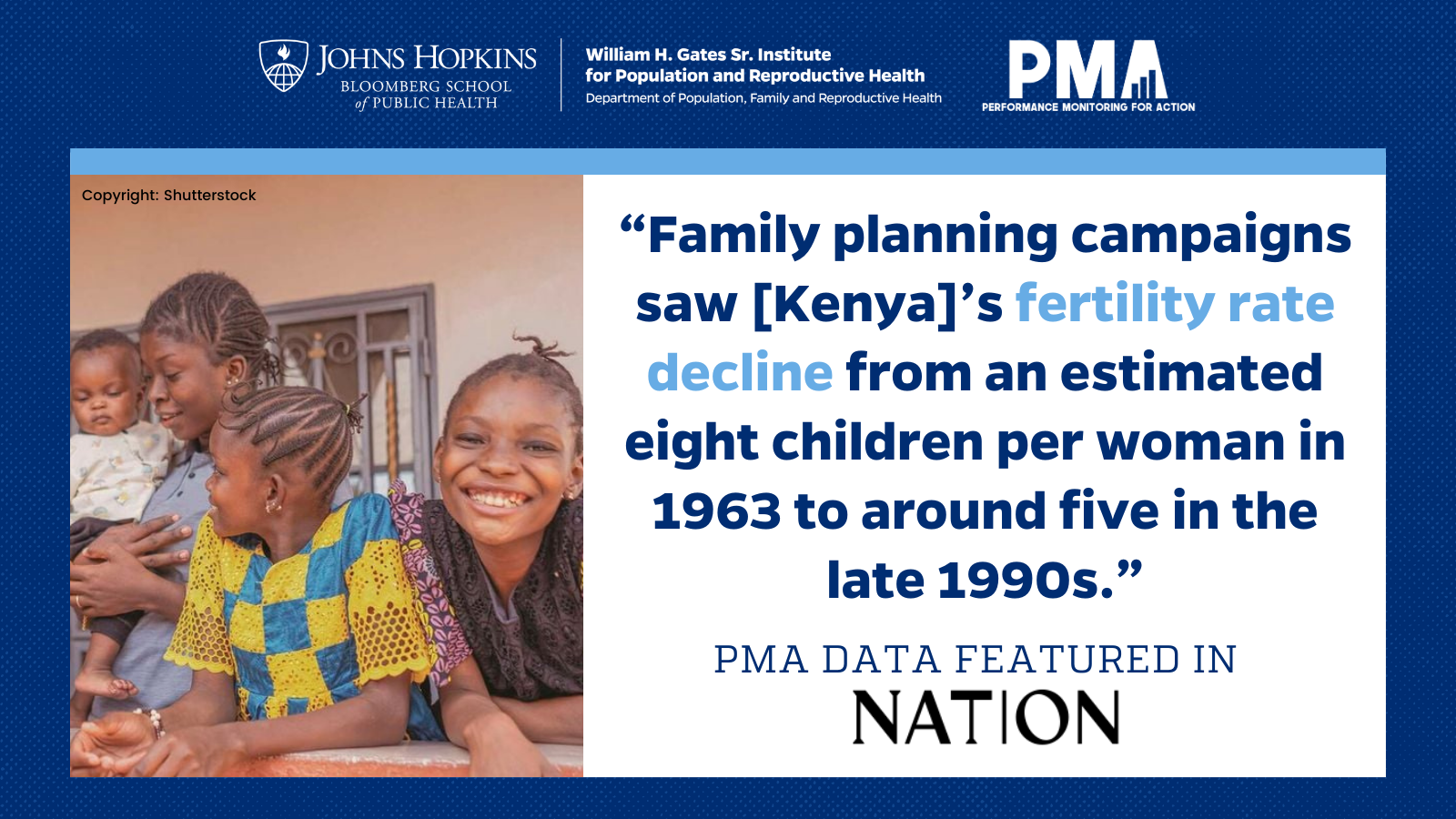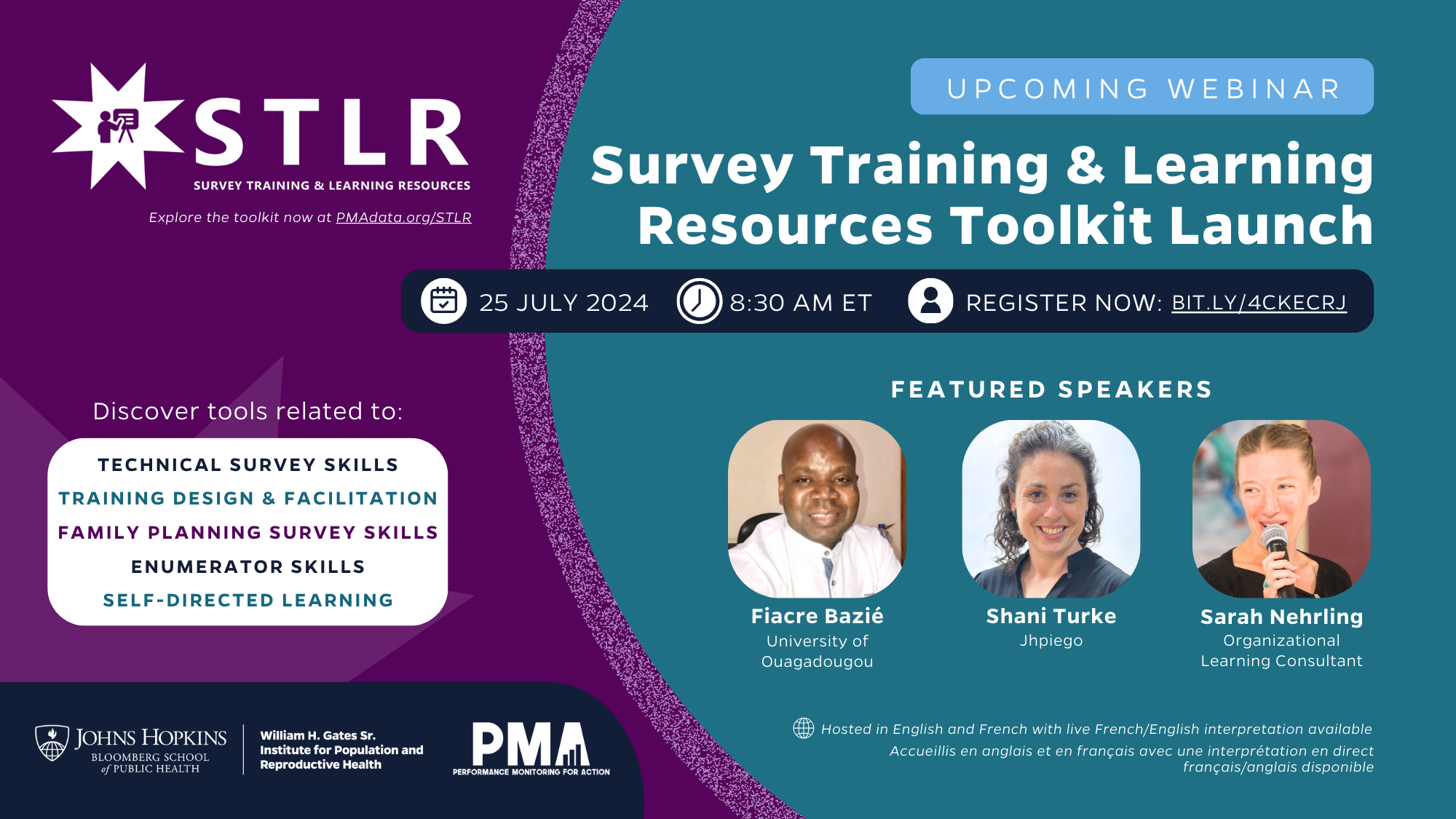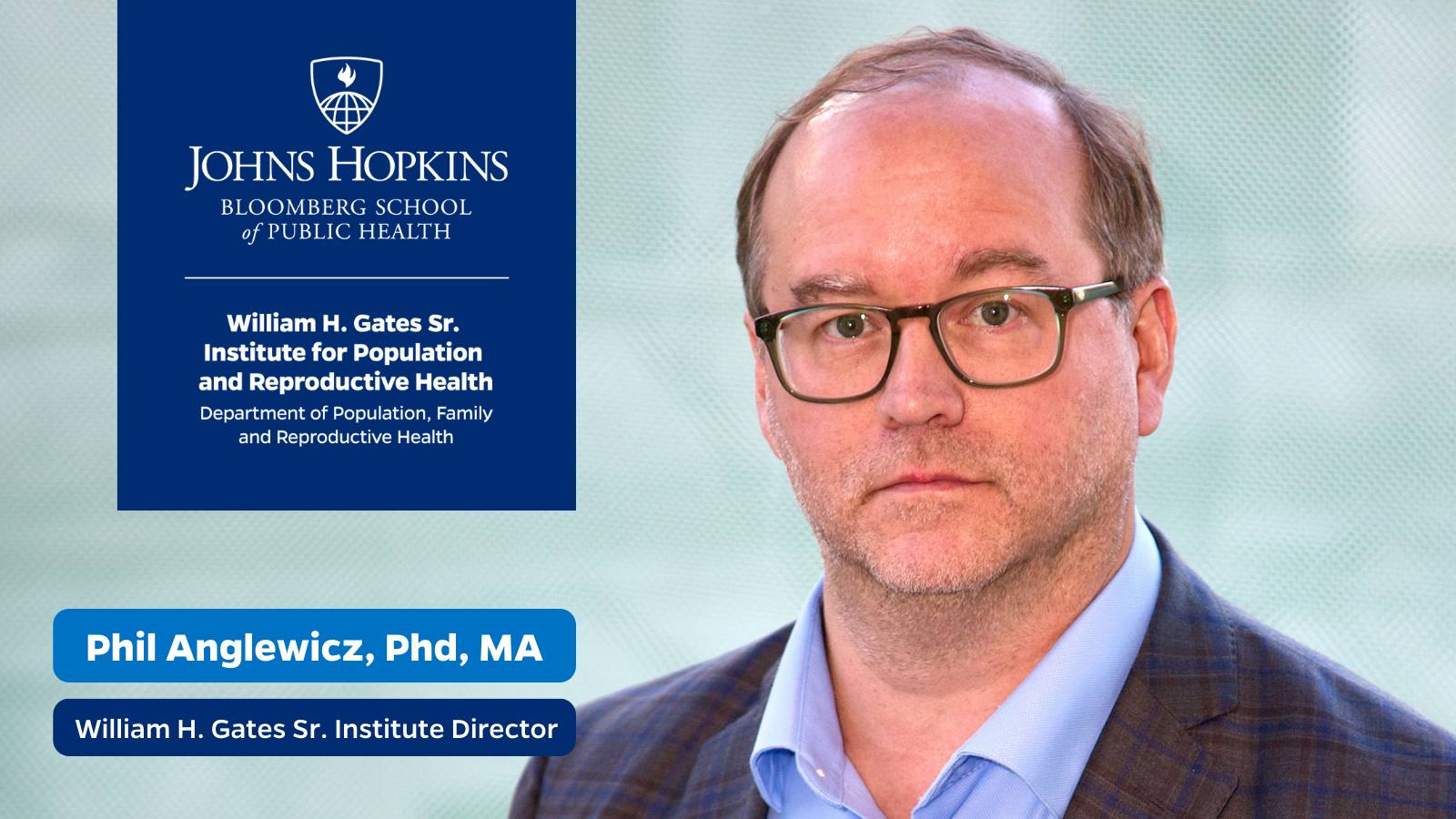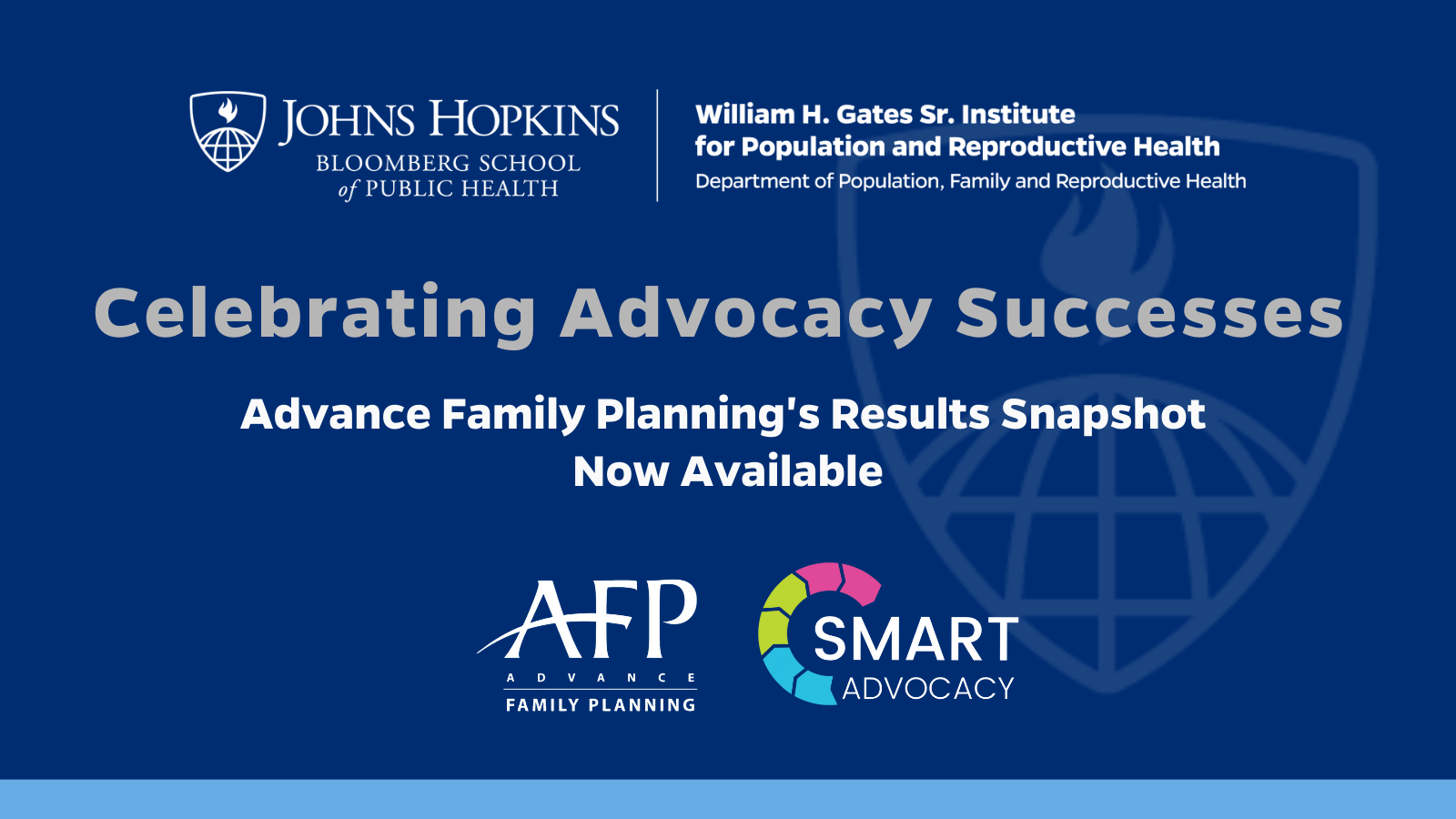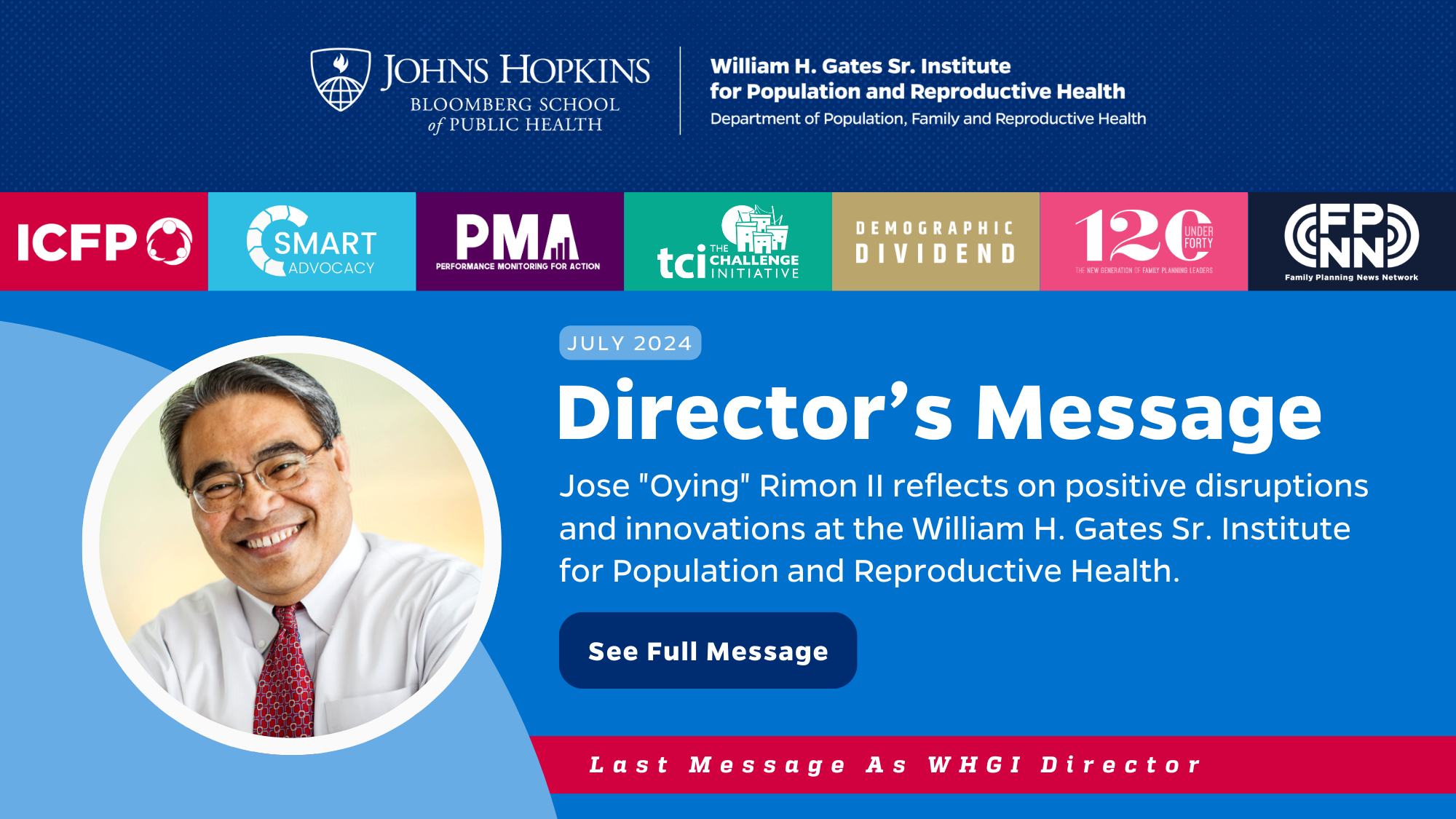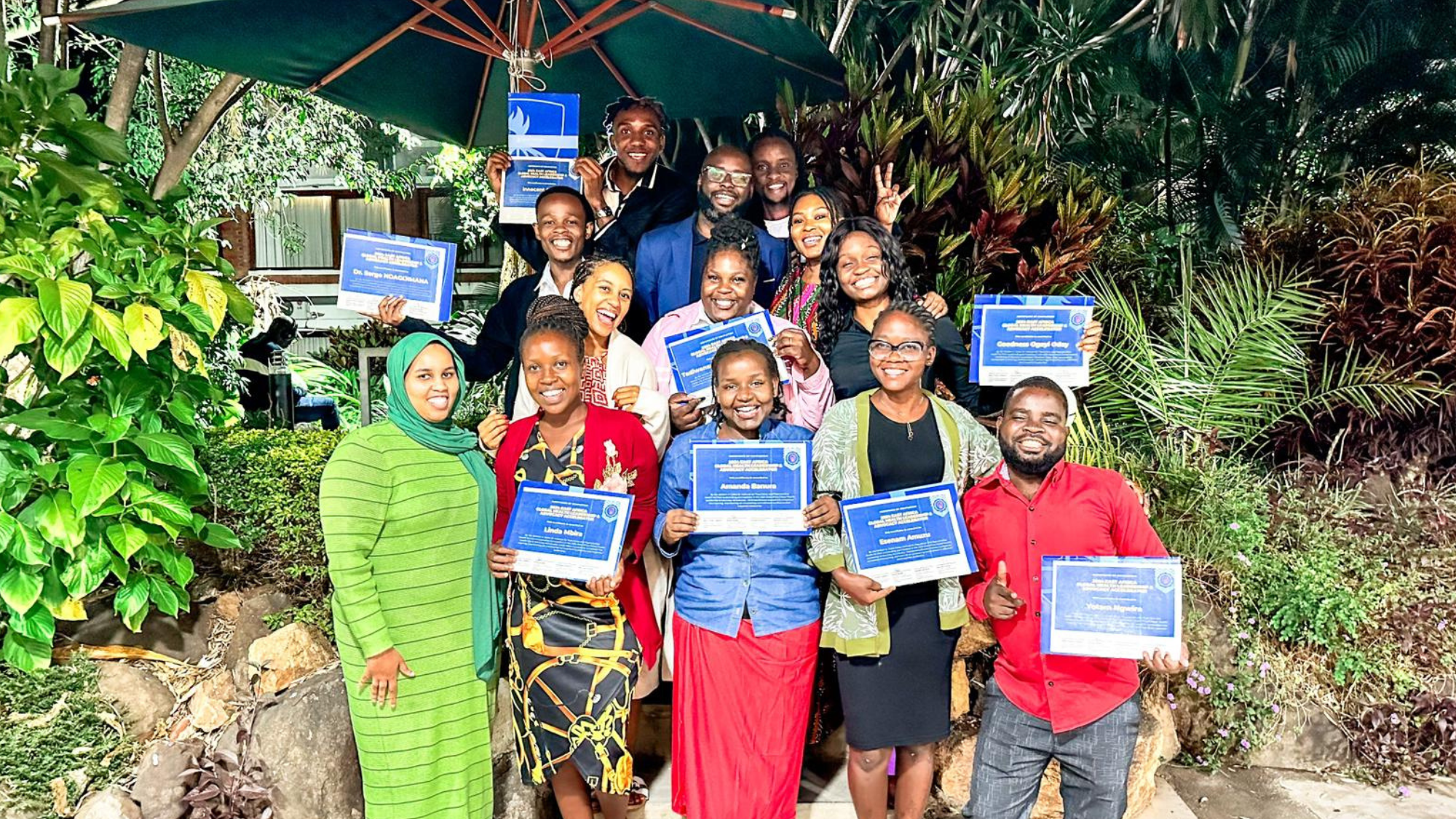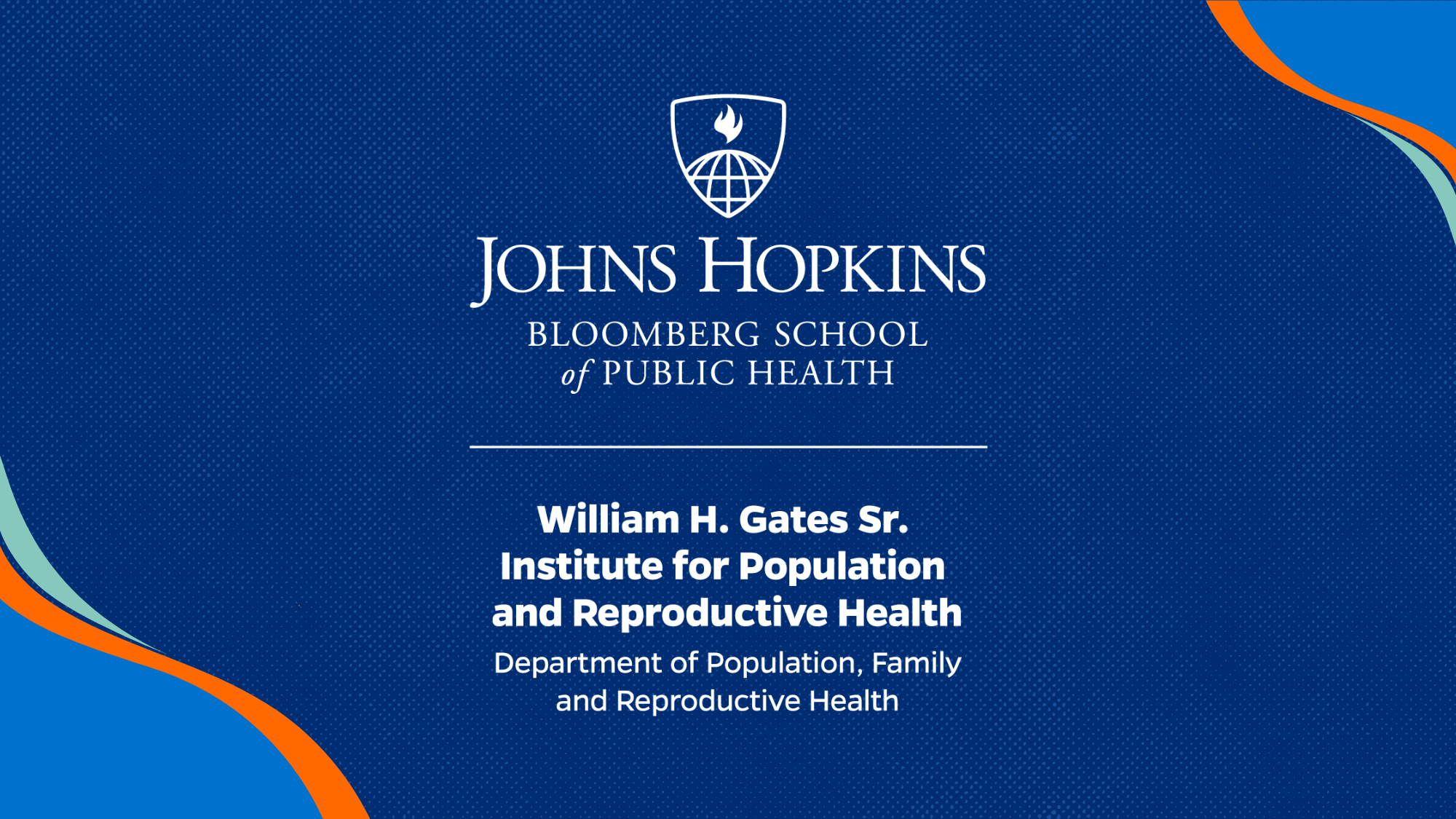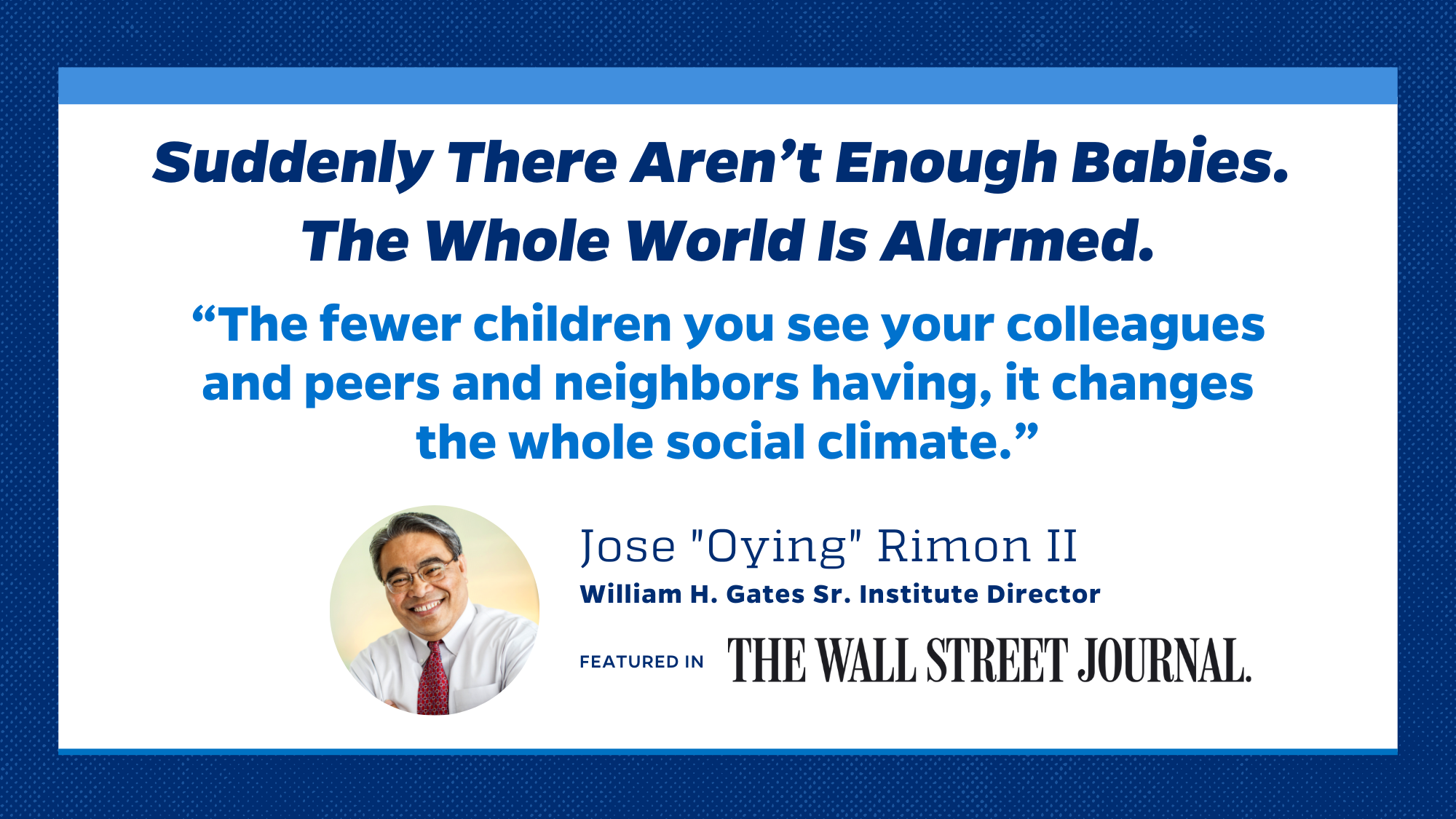We choose to go to the moon.
President John F. Kennedy Jr. said these words in 1962, to a crowd of 40,000 people gathered at Rice University’s football stadium in Texas. The year before, he had proposed that the United States attempt to send a man to the moon, but the public wasn’t on board. Fifty-eight percent of Americans were opposed to the idea. It must have seemed incredible, an impossibility. But, in a way, that was the point.
As President Kennedy put it, “We choose to go to the moon in this decade and do … other things, not because they are easy, but because they are hard; because that goal will serve to organize and measure the best of our energies and skills, because that challenge is one that we are willing to accept, one we are unwilling to postpone, and one we intend to win.” And, seven years later, we achieved that goal: we sent men to the moon and brought them home again safely.
The family planning community is in a similar situation when it comes to our goal of achieving universal access to reproductive health by 2030. Ensuring that every person in the world has access to contraceptive services, information and supplies — to some, it may feel as likely as sending a man to the moon once did. But, as President Kennedy said, we didn’t choose this goal because it is easy; we chose it because it is hard, because it will require our best efforts, and because we agree it cannot be postponed.
I am not the first to make the connection between family planning and this historic speech. Melinda Gates evoked this same sentiment before she helped launch the London Summit on Family Planning in 2012. She said that she had chosen family planning as her issue for her lifetime because that is what the Bill & Melinda Gates Foundation is all about: confronting challenges that are difficult but bring huge returns on investment — not just in financial terms but in human terms as well. In other words, she had chosen family planning not because it is easy, but because it is difficult, and because she believes that it is critically important.
Seven years after the Family Planning 2020 commitments were made during the London Summit, the world has observed an unprecedented increase of modern contraceptives among women and girls — over 46 million additional users. In some difficult regions, such as the Francophone Africa region covered by the Ouagadougou Partnership, the increment of modern contraceptive uptake was much larger than what was observed in the previous 30 years altogether.
This is the good news. The potentially not-so-good news is that, at the present rates, we may not be fast enough to meet the very ambitious 2020 goal of serving an additional 120 million more people, which the reproductive health community set for itself. (Although, a new study soon to be published suggests that in Africa the family planning uptake may be progressing faster than what is currently being reported.) While some communities have been able to harvest the lowest-hanging fruit by developing new policies and establishing programs to accelerate modern contraceptive uptake, some countries, particularly those with frail systems, are facing challenges in sustaining the increase in modern contraceptive users.
Additionally, the world is facing an increasing shortage in funding relative to the need for family planning programs. There is growing insecurity, and there are limited human resources to ensure access to family planning services in many regions; as conflicts intensify, large numbers of women and girls are forced into urban slums and humanitarian settings. Further, global and regional partnerships are critical to successful family planning programs, but some regions are not optimizing such opportunities, with minimal investments in such efforts.
The family planning community is at its most challenging stage so far. We need to find new ways of doing “business unusual” to disrupt the status quo.
In thinking about the field’s next steps, I have found inspiration in Melinda’s powerful new book, The Moment of Lift, which is out today. In it, she shares how, over the last twenty years, she has come to dedicate her life and her philanthropy to alleviating poverty, improving health and lifting up women. “How can we summon a moment of lift for human beings – and especially for women? Because when you lift up women, you lift up humanity,” she writes.
So how can we summon moments of lift, as Melinda asks?
To me, there is a moment of lift when, in a slum in Kampala, Uganda, a woman named Nubuwati — who married at 13 and lives in a one-room shack with her seven children and two grandchildren (the first born to her daughter at 14) — chooses tubal ligation after learning that her fears about family planning were unfounded: “I can start enjoying myself now that childbirth is behind me. I will look after myself and my children, and also maybe buy a nice dress so I can also look beautiful,” she says in this video.
There is a moment of lift when a grandmother from Kaduna, Nigeria, tells her granddaughter that practicing child spacing has been a tradition for hundreds of years, and that her granddaughter is lucky that she has now access to safe modern methods that will allow her to space her children.
There is a moment of lift when a 21-year-old mother in Firozabad, Uttar Pradesh, arrives at the primary health care center on the fixed day of family planning service and is able to get her preferred method with good counseling and quality of care.
There is a moment of lift when a mother from rural Ethiopia does not have to walk 10 miles to get her injection because her health extension worker is now trained and empowered to provide her the service right there in her own village.
And there is a moment of collective lift when high-volume health facilities in Nigeria receive 72-hour physical makeovers, so that more women and men desire to go to these improved health facilities and morale among health providers is increased across the board.
This year, we are seeking to identify more moments of lift. In 2019, the Gates Institute is celebrating our 20th anniversary — two decades of Scholarship & Science for Social Change — and we are focusing on soliciting powerful new ideas from across all sectors of the public health community. These ideas will be presented at a high-level convening represented by diverse voices from key researchers, advocates, donors, private sector, youth, politicians and policy makers, to explore ways we can catalyze progress toward realizing universal access to rights-based family planning by 2030. Ultimately, the goal is to contribute to formulating and inspiring a shared vision for “Beyond 2020.”
Together, I believe that all these moments of lift will get us to universal access — to the moon, if you will.
Won’t you join us as we lift off?
Sincerely,
Jose “Oying” Rimon II

